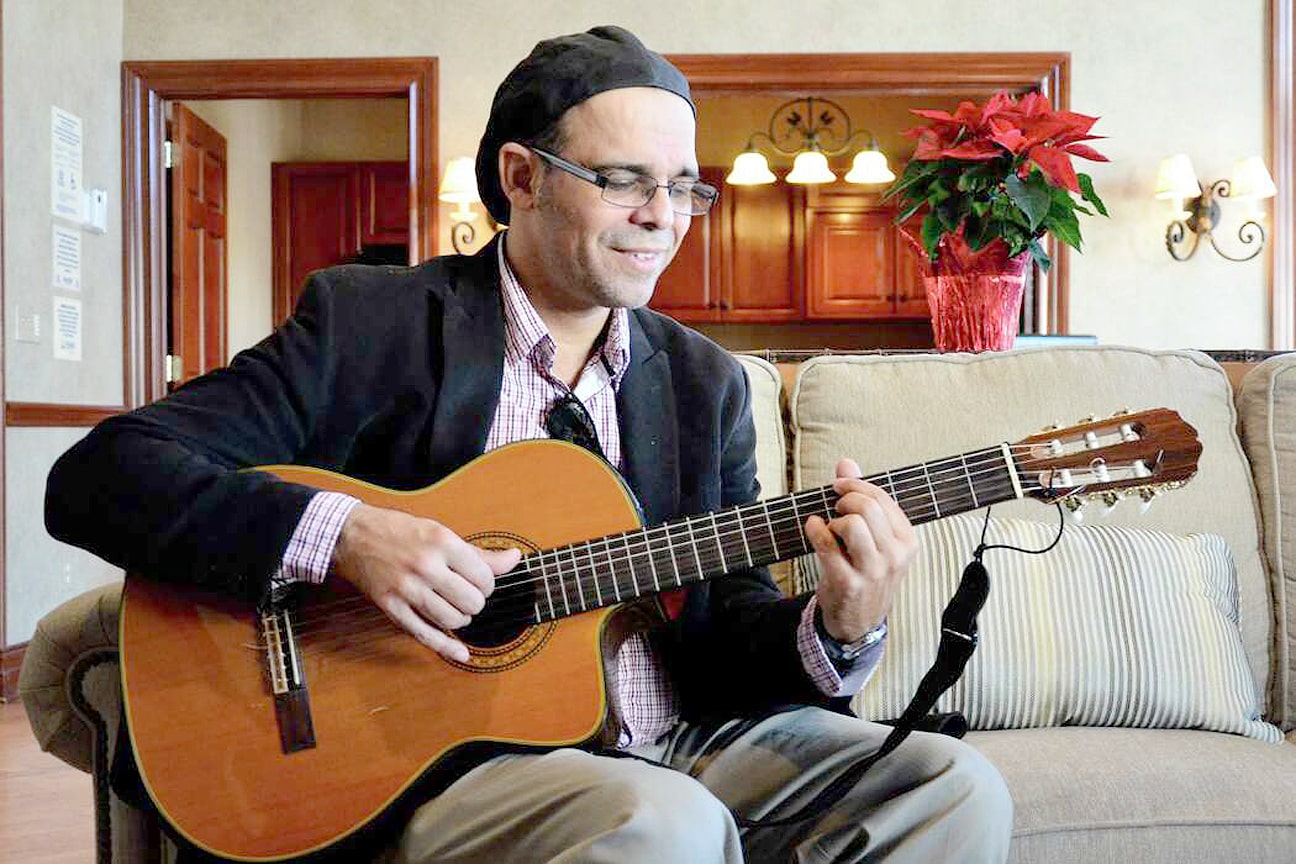Rovanio: The Music of Nanny Assis,” to be released June 23 on the German jazz label, In+Out Records is Assis’s second album. It showcases not just his versatility but his love for collaboration, with appearances by a full twenty guest artists—including such esteemed figures as Ron Carter, Randy Brecker, Chico Pinheiro, and Janis Siegel.
Simply put, Rovanio is Assis’s real first name. He has been known as Nanny since childhood; similarly, he’s been known as a samba guitarist, percussionist, and singer for most of his career. For Assis, however, both identities weren’t enough: He had much more to offer than a nickname and a single genre. “Rovanio: The Music of Nanny Assis” presents the full spectrum of who he is as a musician.
“Coming from Brazil, I have so many different styles and roots for my music; it’s very rich,” he says. “There’s so much information in one place, and it’s really strong in the culture, the dance, and the music. And I figure I’m the glue for all that.”
Indeed, for all its rainbow of sounds, rhythms, textures, and musicians, the album retains an unshakably (and unmistakably) Brazilian core. It’s an ever-present reminder of the wide panoply that is Brazilian culture—and, in turn, that is Assis’s artistry.
There are, of course, traditional samba and bossa nova sounds on “Manhã de Carnaval” and “No Agora/Mr. Bowtie,” respectively. But Rovanio also offers the powerful West African flavor of “Amor Omisso,” the aching balladry of “Proponho,” and the jazz pedigree of “Human Kind” and “The Northern Sea.”
Assis’s collaborators each put their distinctive touches on the music in unique and surprising ways: The melody of “Proponho,” for example, is actually Fred Hersch’s composition “Mandevilla,” and it’s the pianist himself who renders the tune with newfound grace and sensitivity as a vocal accompaniment—with Siegel providing the harmony for that vocal. Carter appears at several points, perhaps most beautifully when he interlocks with drummer Ulysses Owens Jr. on the charming closer “Intimate Acquaintances.” Assis’s own daughter, Laura, works with her father in two very different roles: as lead vocalist on the beguiling Portuguese-language “Insensatez,” and as lyricist (in English—and of stunning sophistication, considering she was six years old at the time) on the moving “Back to Bahia.” (Assis also performs a duet with his son Dani on “Human Kind.”)
Ultimately, however, it is Assis’s stamp on the material that proves indelible. After” Rovanio,” no one will pigeonhole him as just Nanny Assis, samba musician.
Rovanio “Nanny” Assis was born August 25, 1969, in Salvador, Bahia, Brazil. When he was 7, he began playing drums and singing in the choir at the church where his father was pastor. After he picked up the basics of the guitar, he turned to the secular musical world, playing fusion and samba with his friends and making his first excursions into jazz.
He continued pursuing music even as he earned degrees in linguistics and Portuguese literature at Catholic University of Salvador, and married and started a family. American music—and America itself—were his targets, achieved when in 1993 he joined the Austin, Texas–based Rolling Thunder as a percussionist. After six years of regular work in the U.S., he moved to New York with his family in 1999.
Assis continued working in multiple genres, but increasingly found himself in the company of jazz musicians. He worked with singer Lauren Henderson, trumpeter Mark Morganelli, and keyboardist Pete Levin; featured Eumir Deodato, Romero Lubambo, John Patitucci, Michael Leonhardt, and Erik Friedlander on his first album, 2006’s “Double Rainbow”; and formed the Requinte Trio with Janis Siegel and John Di Martino (making an eponymous album with them in 2010). Jazz players also dominate the ranks of his collaborators on “Rovanio: The Music of Nanny Assis,” his second album as a leader.
“’Rovanio’ is my best musical work to date,” says Assis. “For many years I had the urgent desire to see this music materialize. It encompasses all of my life experiences—rhythmically, harmonically, and melodically—since I was young.”



